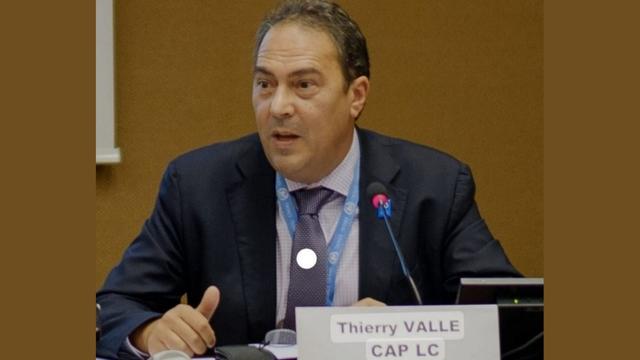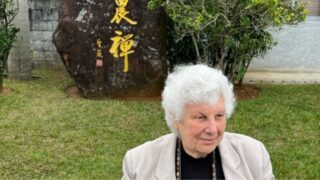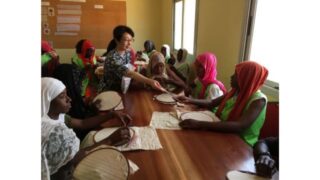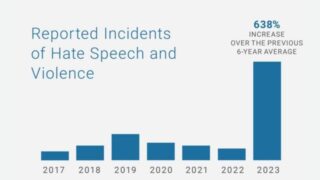A new statement has been submitted to the Human Rights Committee, protesting human rights violations after the assassination of Shinzo Abe.
by Massimo Introvigne


Violations of freedom of religion or belief of members of the Unification Church/Family Federation continue unabated in Japan after the assassination of former Prime Minister Shinzo Abe, and the international human rights community is not keeping silent.
After an initial submission and a first supplemental statement, a second supplemental statement has been filed with the United Nations Human Rights Committee (HRC) on November 4 by the Coordination des Associations et des Particuliers pour la Liberté de Conscience (Coordination of Associations and Individuals for Freedom of Conscience, CAP-LC), a non-governmental organization in special consultative status with the UN ECOSOC (Economic and Social Council). The statement offers further evidence that what is happening violates Japan’s commitments assumed when it ratified the International Covenant on Civil and Political Rights (ICCPR), and its Optional Protocol acknowledging the authority of the HRC in assessing its violations.
The statement, which relies inter alia on research published by Bitter Winter, notes that Abe was assassinated on July 8 by a man called Tetsuya Yamagami, who claimed he wanted to punish him for his participation in the events of an organization connected with the Unification Church (now called the Family Federation for World Peace and Unification, FFWPU). Yamagami said he was motivated by the fact that in 2002 his mother went bankrupt after she had made excessive donations to the church. He had also planned to assassinate the Family Federation Leader, Dr. Hak Ja Han Moon.
Together with Abe, the Unification Church had been a target and a victim of the crime. However, CAP-LC noted, the anti-cult lobby that has campaigned for decades against the church in Japan managed to reverse the narrative, and persuade several media and politicians that, rather than being a victim, the Unification Church was somewhat responsible for the Abe assassination.
CAP-LC’s second supplemental statement uses the so-called “Rome Model,” proposed by the OSCE (Organization for Security and Cooperation in Europe) at its September 12, 2011, conference in Rome on intolerance and discrimination against Christians, and adopted by several scholars and NGOs in subsequent years.
“It is a three-stage model, CAP-LC explains, that predicts a slippery slope from intolerance to discrimination and from discrimination to persecution. The attack on an unpopular minority starts with intolerance. A group is ridiculed through stereotypes and depicted as malignant, evil, an obstacle to happiness and social harmony. Very often, intolerance is spread by lobbies that manipulate the media. In the Rome Model, discrimination, a legal process, soon follows intolerance. There is a perverse logic in this progression. If a group or organization threatens society and public harmony, society needs legal and administrative measures against it. The same lobbies are ready to introduce new laws and call for administrative and legal action. The third stage of the spiral of intolerance leads from discrimination to persecution. If discrimination fails to suppress a minority regarded as socially undesirable, it is not surprising that some, excited by the hate speech, take the law in their own hands and use physical violence against that minority.”


Cautioning that obviously “we cannot compare a democratic government such as Japan’s to totalitarian regimes,” CAP-LC offers as an example of the Rome-model “spiral of intolerance” the situation of Jews in Nazi Germany. They “were attacked through books and caricatures (intolerance) and then discriminated by the laws (discrimination); and in the end, Auschwitz came (persecution).”
It may be objected, CAP-LC observes, “that intolerance, unlike discrimination, does not involve violations of the ICCPR. While states discriminate, private citizens, lobbies, and media spread intolerance. However, there are cases in which state organs promote intolerance, thus violating the provisions of Art. 17 ICCPR on the right to honor and reputation, as well as Article 18.1 ICCPR on freedom of religion or belief and Article 26 ICCPR on non-discrimination.”
These violations include the fact that Attorney Masaki Kito, one of the most militant opponents of the Unification Church, has been included by the government in the Ministry of Consumer Affairs’ committee investigating the church. Additionally, CAP-LC notes that Prime Minister Fumio Kishida himself has announced he will meet with a female “apostate” ex-member of the church who has emerged as one of its main slanderers, thus legitimizing her campaigns of fake news.
The problem, CAP- LC notes, is in fact broader. Stories propagated by anti-cult opponents and apostate ex-members are accepted and propagated by the authorities, without allowing the Unification Church to defend itself, which also violates Article 14 ICCPR on due process.
“Such disparities between accounts of negative ex-members of the Unification Church (and of other new religions) and the reality as revealed subsequently on closer enquiry and by objective analysis, CAP-LC comments, are relatively commonplace in the literature of the Sociology of Religions. As (inter alia) the work of David Bromley and the late Anson Shupe in the United States, clearly shows, those who leave the Unification Church are often heavily influenced by the coercive efforts of some combination of their family members, friends, the media and ‘anti-cultists’ including those using forcible techniques such as forcible detention, by so-called ‘deprogrammers,’ to re-interpret their experiences in the church, which at the time they had seen in a very positive light, in a negative way. Some of them are persuaded to become outspoken opponents of the church in the media and to become part of the so-called ‘anti-cult movement.’”


These are the ex-members sociologists call “apostates.” However, CAP-LC notes, “studies by Bromley and others have evidenced that only a minority of those who leave a religion become ‘apostates.’ Most ex-members just move to other experiences, and have no interest in publicly attacking the religion they have left. However, the ‘apostates’ are the only ex-members that the anti-cult movements mobilize and put in touch with the media, which are happy to report what sociologists refer to as ‘atrocity stories.’”
Ignoring precedents in other countries and scholarly criticism, Japanese authorities regard “apostates” as their privileged source of information about the Unification Church. CAP-LC request “that the U.N. Human Rights Committee seriously consider drawing the attention of the Japanese government to the grave shortcomings in its way of dealing with investigations into the FFWPU thus far and call on it to firmly abide by its obligations under the ICCPR in all future dealing with FFWPU, including particularly the requirement of a presumption of innocence until guilt is proved, the right to due process and of those under investigation to contest evidence adduced against them.”
In the Rome Model, intolerance is followed by discrimination, “i.e., legal and administrative measures targeting an unpopular minority.” These measures have now escalated to setting up an ad hoc commission investigating the Unification Church/FFWPU with the aim of considering a lawsuit for its dissolution.
How the commission is organized, CAP-LC notes, “is contrary to Article 14 ICCPR. Rather than being presumed innocent (Article 14.2 ICCPR), the FFWPU is presumed guilty from the very beginning of the process.”
Even if political parties are not part of the governments, they have a constitutional role and should also respect the principles of the ICCPR. In Japan, the ruling Liberal Democratic Party has amended its Governance Code to prohibit the Party’s Diet members from cooperating with “organizations or groups whose activities raise concerns of social relevance,” and has sent a letter to all its parliamentarians explaining that by “organizations or groups” it means the Unification Church/FFWPU and all its affiliated organizations. According to CAP-LC, “This is a blatant violation of Article 22 ICCPR on freedom of association and Article 25 ICCPR on the right to political participation.”


The fact that organizations affiliated with the Unification Church, including the Universal Peace Federation and the Women’s Federation for World Peace International, both recognized by the United-Nations, are being discriminated against only because of the religious beliefs of their founders and (some) members also violates Article 2 and Article 18 ICCPR, CAP-LC states.
CAP-LC finally writes that, “We would like to conclude by stating that the third stage of the Rome Model, persecution, is in the future. It can still be avoided, by stopping the crackdown on the Unification Church at the stage it now is, discrimination. However, this is only partially true. While the FFWPU has not yet been dissolved, and no members have been incriminated or arrested, a climate of intolerance and discrimination, fueled by hate speech, has not failed to generate hate crimes.” CAP-LC lists several cases of verbal and physical violence against devotees and properties of the FFWPU.
“An intervention by the Committee is becoming, more than ever, a matter of real urgency!” CAP-LC concludes.








